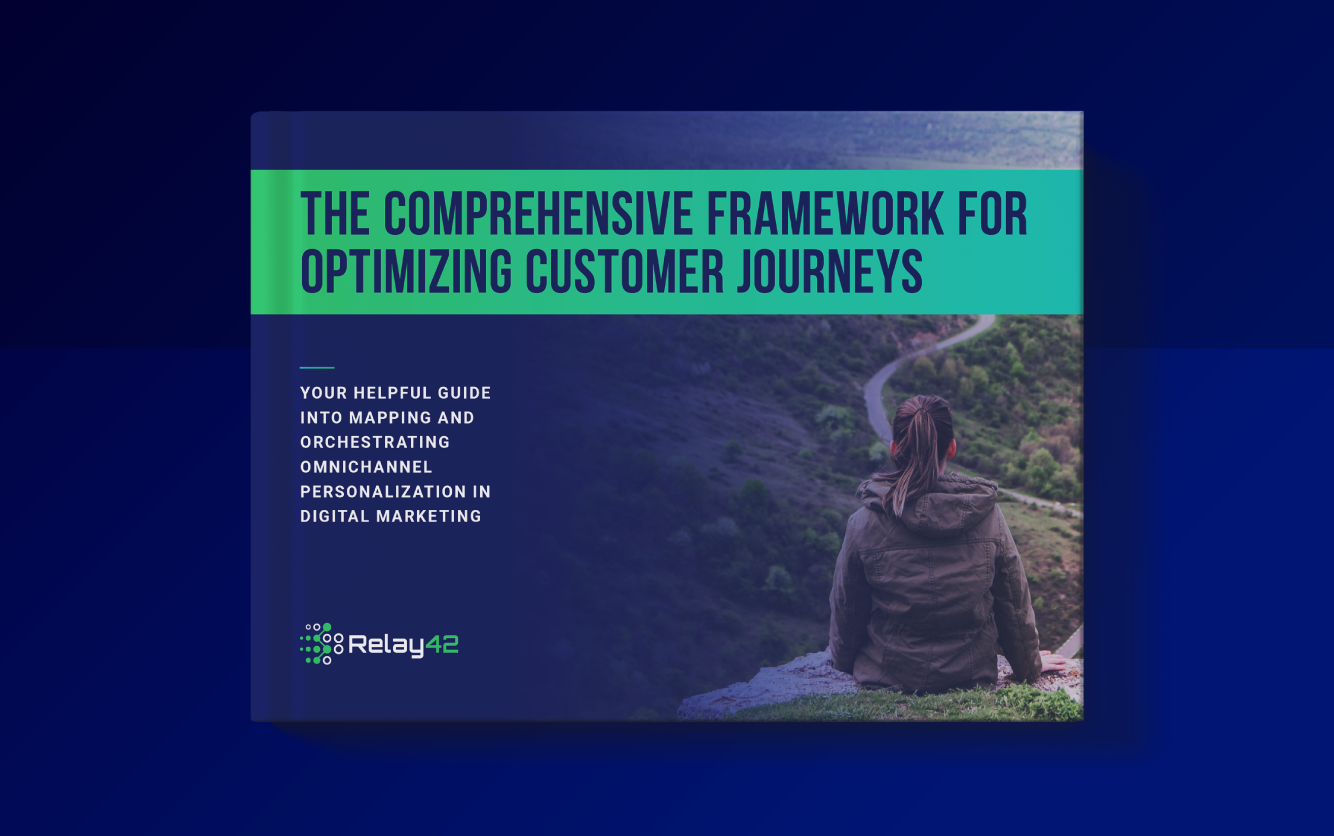Predictive AI for real-time customer journey decisions
Relay42's predictive Journey AI models empower digital experts to crunch huge amounts of data, allowing them to understand their customers' behavior and anticipate next actions.
.png?width=2000&height=2000&name=2%20-%20Predictive%20AI%20(1).png)

Enabling marketing teams to harness the power of predictive AI in customer journeys
Predict Conversions
Use the Likeliness-to-Convert model, trained on your buyers' purchase patterns, to predict who will convert, and when!
Generic AI Trainer
Relay42's generic trainer and neural network ensures your data is ready-to-go for training our AI predictions.
AI-powered Journeys
Utilize real-time AI decisions in your customer journeys to predict next best product, conversions and churn.
AI Enriched Profiles
Continuously enhance individual profiles over time, and predict future outcomes with Predictive AI scores on every profile.

Predictive AI models made usable by marketers
The creation and training of predictive AI models is usually a skill out of reach for marketers, while also taking months to put into production. With Relay42, and leveraging our in-house experts, marketing teams can launch predictions with no technical skills required!
- Pre-built AI models ready to be trained on your customer data;
- No technical skills required to deploy a prediction model;
- Models re-train and improve accuracy over time;
- Predict conversions, churn, next best product & more.
.png?width=1765&height=2000&name=AI%20(3).png)
.png?width=1765&height=2000&name=4%20-%20Artificial%20Intelligence%20(1).png)
AI models ready to deploy rapidly into Campaigns
Relay42’s Predictive AI models can be trained in hours or days depending on your typical customer lifecycle. This hugely accelerates your time-to-value with predictive AI, having models ready to deploy into customer journeys and campaigns.
- Train and deploy predictive AI models in super-fast time;
- Utilize all events and behaviors for model training & accuracy;
- Continuously add new variables and re-train models at will;
- Deploy AI predictions directly into journeys and campaigns.
Fully customized models for your business
Traditional AI or ML models follow a one-size-fits-all practice, and rarely relate to your actual business. Relay42's predictive AI is a fully customizable AI solution for your business, using a generic trainer to deploy predictions based on your data and objectives!
- AI models customizable to the unique needs of your business;
- Generic trainer allows for incredible flexibility to suit you;
- Pre-built models, ready to customize, saves valuable time.
.png?width=1765&height=2000&name=5%20-%20Artificial%20Intelligence%20(1).png)
Monitor Predictive AI performance
With Relay42's Predictive AI module, metrics are generated every time a model is trained, re-trained, and deployed. This makes it fully transparent allowing marketers to see immediately the outcome of the model and make changes where needed.
- Predictive AI results available inside Relay42;
- Predictive AI tests easy to configure;
- AI results available inside your Relay42 customer journeys.
Discover How Levi's Leveraged Relay42's AI Module
How Levi's connected customer data and increased their marketing effectiveness
Levi’s levelled up their customer data management with Relay42 by getting a unified view of their online and in-store customers, and then leveraged the data to improve their customer acquisition programs:
- 377% conversion rate increase on Facebook and Instagram
- 326% decrease in CPM & 65% in CPC spend on programmatic
- 115% conversion rate uplift on brand search
Onboarded in only 8 weeks across a range of uses cases, Levi's were able to improve online and offline audience prospecting and post-sale retargeting, in-market web retargeting, and audience suppression.
Relay42 Features at a Glance
Unified Customer Profiles
Unify data from across the business to create profiles of known customers & anonymous prospects
Real-time Personalization
Personalize any channel, offer or experience in real-time for both known customers and anonymous prospects under 200 milliseconds
Audiences & Segmentation
Build and segment audiences using the full breadth of behavioural data, engagements and insights from your customers
Customer Insights & Analytics
Better understand your customers and their journey stages to create personalized experiences
Predictive Analytics & AI Models
Train and deploy AI models to predict conversions, churn, next best actions and more
Data Privacy, Compliance & Security
Structure your customer data, while adhering to the most stringent compliance regulations
Customer Journey Orchestration
Orchestrate and optimize customer journeys across all your paid and owned channels
Integrations & Connectors
Leverage hundreds of integrations and connectors to play seamlessly with your existing marketing technology stack
We play nicely with your existing technology stack
Relay42 is built for connectivity!
The Relay42 CDP integrates with all the sources of customer and prospect data in your business, as well as with your marketing and CRM channels to unify customer profiles across your technology ecosystem.
We support integrations with more than 100 data sources.

See Relay42 in Action
Experience a first-hand tour of the Relay42 Customer Data Platform with one of our consultants

